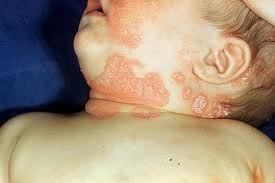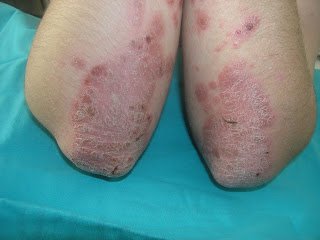Can Psoriasis Spread: The Question of Whether Psoriasis is Contagious
Understanding the Spread of Psoriasis: A Detailed Explanation
The question of whether psoriasis can spread is a common concern among individuals diagnosed with this chronic skin condition. The answer, however, isn't straightforward. It depends on various factors, including the type of psoriasis, individual patient characteristics, and the severity of the condition. For some, psoriasis might manifest as a single, isolated patch, while others experience widespread outbreaks covering significant portions of their body. To fully address this question, it's essential to delve into the nature of psoriasis and the mechanisms that influence its progression. Can Psoriasis Spread.
Psoriasis: An Autoimmune Disorder
Unlike many skin conditions triggered by external irritants, psoriasis is an autoimmune disease. This means the immune system mistakenly attacks healthy skin cells, leading to the characteristic lesions and plaques. This internal dysfunction makes predicting the course of psoriasis more complex. While external factors can exacerbate the condition, the underlying cause lies within the body's immune response.
Variations in Psoriasis Spread
The spread of psoriasis varies significantly among individuals. Some people might experience a single patch that remains localized, while others may develop multiple lesions that spread across the body. The extent of spread is influenced by several factors, including the type of psoriasis, genetic predisposition, and environmental triggers.
Types of Psoriasis and Their Spread
Different types of psoriasis exhibit varying patterns of spread. Plaque psoriasis, the most common form, typically presents as raised, red patches covered with silvery scales. These plaques can appear anywhere on the body and may spread gradually or remain localized. Guttate psoriasis, often triggered by infections like strep throat, appears as small, drop-shaped lesions that can spread rapidly across the body. Inverse psoriasis affects skin folds, such as the armpits and groin, and may spread within these areas. Pustular psoriasis, characterized by pus-filled blisters, can be localized or widespread. Erythrodermic psoriasis, the most severe form, involves widespread inflammation and scaling, covering a significant portion of the body.
Factors Influencing Psoriasis Spread
Several factors can influence the spread and severity of psoriasis:
* Genetics: A family history of psoriasis increases the likelihood of developing the condition and can influence its pattern of spread.
* Triggers: Certain triggers can exacerbate psoriasis or provoke flare-ups, including stress, infections, skin injuries, certain medications, and smoking.
* Immune System Activity: The overactive immune response in psoriasis drives the development and spread of lesions. Factors that influence immune system activity can indirectly affect the spread of psoriasis.
* Lifestyle Factors: Lifestyle choices, such as diet, exercise, and stress management, can influence the severity and spread of psoriasis.
Managing Psoriasis Spread
While psoriasis cannot be cured, various treatments can effectively manage its symptoms and prevent or minimize spreading. These treatments include topical medications, phototherapy, systemic medications, and biologics. Working closely with a dermatologist is crucial to develop a personalized treatment plan that addresses the specific type and severity of psoriasis.
Addressing the Concern of Contagion
It's important to emphasize that psoriasis is not contagious. It cannot be spread from person to person through physical contact. This understanding can help alleviate concerns and reduce stigma associated with the condition.
The information provided here is intended for educational purposes and does not constitute medical advice. It's essential to consult with a qualified healthcare professional for accurate diagnosis and personalized treatment recommendations. They can assess your specific condition and provide guidance on managing your psoriasis effectively.

Can Psoriasis SPREAD Through Direct Contact?
These skin cells pass away faster compared to the physical body has the ability to remove them by all-natural peeling. This procedure triggers those thick, increased psoriasis plaques a measure of this condition to arise throughout a break out.
Psoriasis is not transmittable. You could not be contaminated with a psoriasis "infection" by being or touching around somebody with the problem. Once again, psoriasis is the outcome of the body immune system assaulting its very own physical body, an issue bringing about extreme manufacturing of brand-new skin cells in an effort to "guard" the physical body versus an illness that does not already existing.
Current research points to psoriasis being a highly genetic disorder triggered by a combination of environmental and psychological factors, especially stress. Most patients with psoriasis will have a close family relative affected by the disease as well.
Can Psoriasis Spread By EXCESSIVE Scratching?
Psoriasis plaques are inflamed, red and extremely itchy. Patients will scratch so much that lesions eventually start bleeding, causing pain and more inflammation. The bleeding occurs because intense scratching breaks open capillaries lying just below the surface of the plaques. Scratching may cause psoriasis to spread but the main consequence of constant scratching is worsening of pain and irritation.
To stop the potential spread of psoriasis plaques, patients use one or more the following for relief from itching:
- Antihistamines
- Moisturizing lotions
- Topical corticosteroids
- Capsaicin
- Topical anesthetics
- Oatmeal baths (Aveeno bath treatments)
- Ice packs
Before
going to bed at night, psoriasis sufferers will slather lotion on
plaques and then cover the treated area with plastic gloves, plastic
wrap or socks, depending on where the lesions are affecting the body.
This procedure is referred to as "occlusion" and enhances the ability of
the cream to inhibit itching.
Can Psoriasis Spread While TAKING Medication?

Psoriasis patients react differently to the variety of medications
that are available for treatment of psoriasis symptoms. It is possible
to be taking a prescription medicine and suddenly experience worsening
of plaque lesions. This is due to the unpredictability of the immune
system's reaction to foreign substances in the body, especially when
dealing with an immune system that is not functioning properly.
Changing medications often counteracts the abrupt exacerbation of psoriasis lesions in patients who had previously been responding well to a certain medication. Currently, around 15 different types of drugs exist for treatment of psoriasis, with many capable of effectively reducing psoriasis symptoms in up to 75 percent of patients.
One side effect of these medications, however, sometimes prevents certain patients from taking them to prevent their psoriasis from spreading. Since these medications target the immune system by suppressing its ability to detect both real and nonexistent infections, that person's ability to fight infections is also reduced.
Frequent respiratory infections are a common side effect experienced by patients taking prescription psoriasis medications, as well as fevers and flu-like symptoms.Although the answer to can psoriasis spread from person to person is a definite no, patients should be aware that it can spread to any part of the body without warning. Taking preventative measures should reduce itching and may help inhibit further growth of lesions.
Get more information about What is Psoriasis
 Psoriasis on the leg
Psoriasis on the legPágina de inicio
Mapa del sitio
Mapa del sitio en orden alfabético